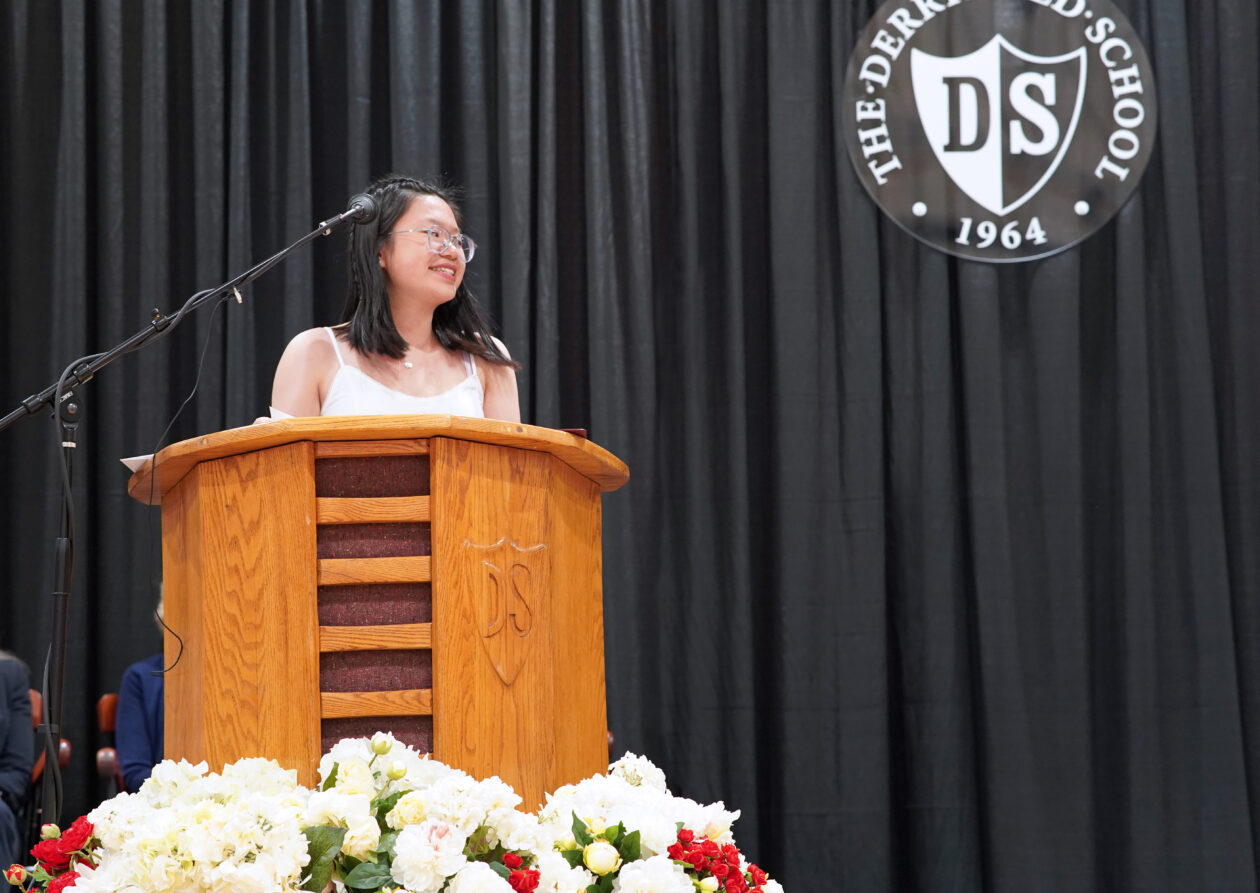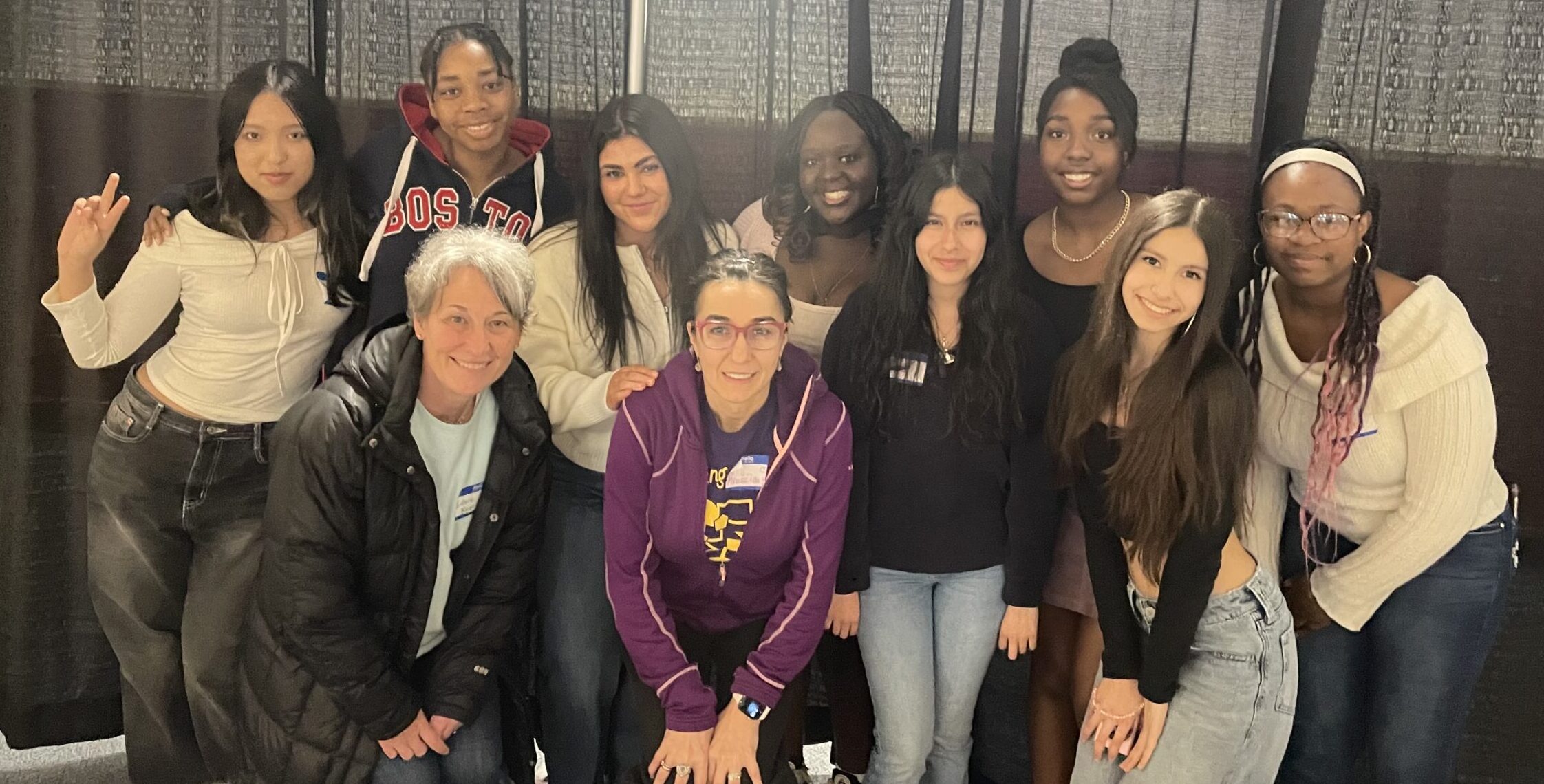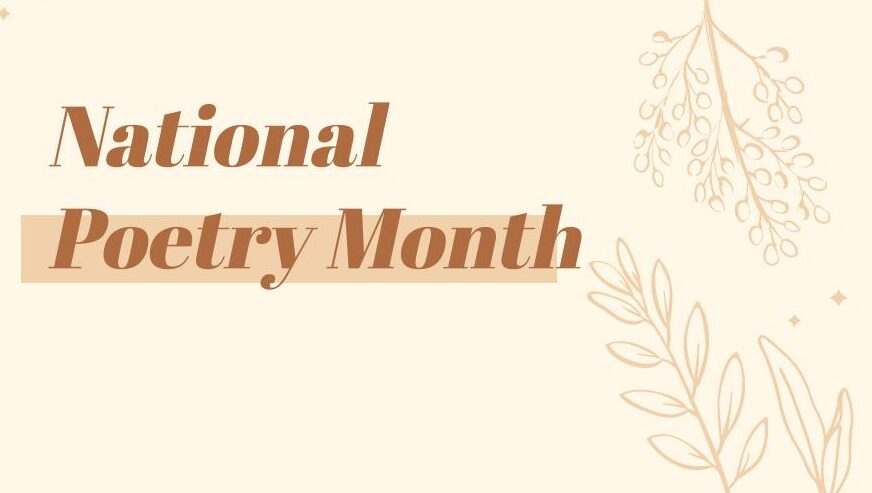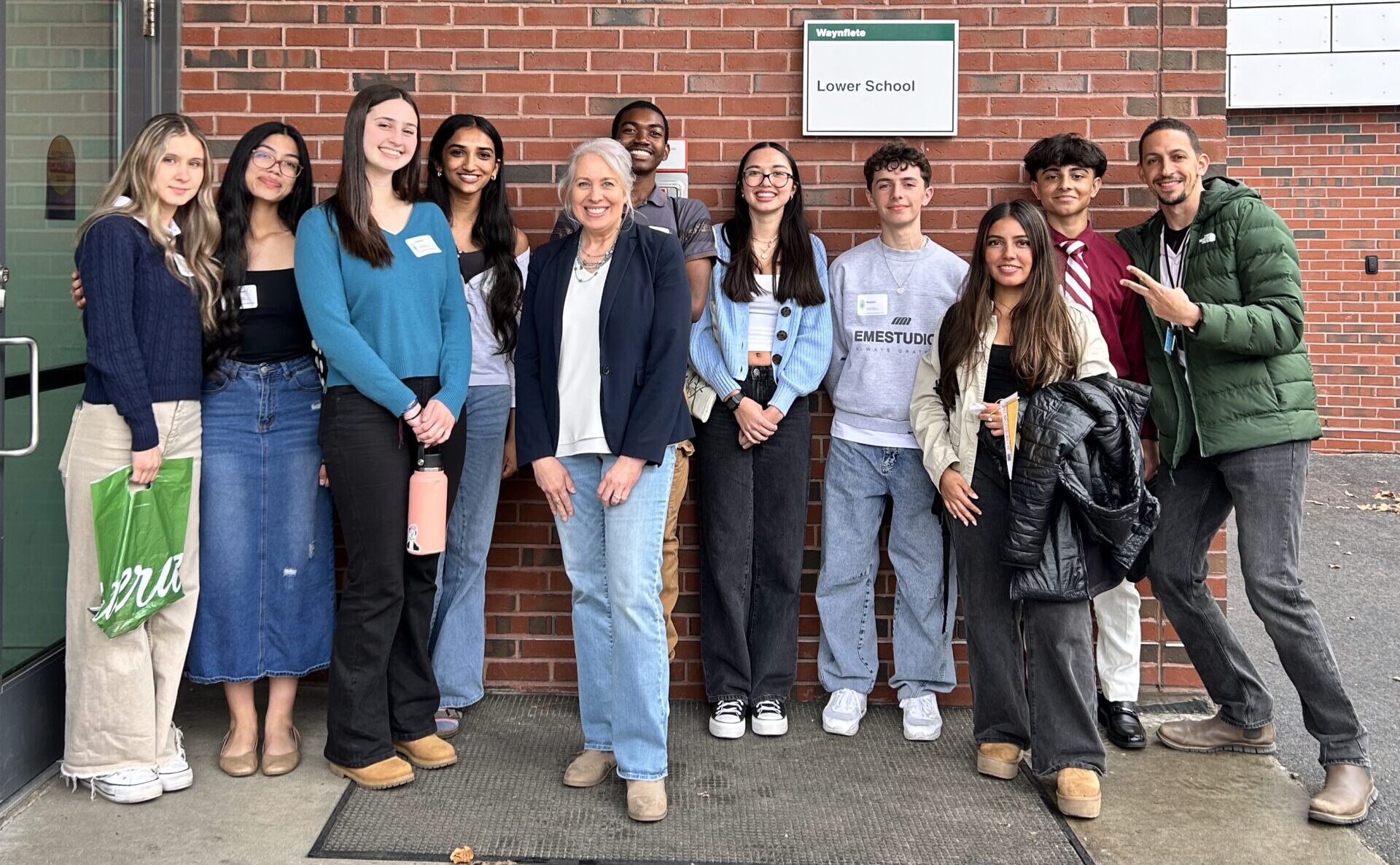By Tiffany Zhou ’23
Good morning Derryfield friends, family, faculty, and of course, the esteemed graduating
class of 2023! It is an honor for me to speak in front of you all today to celebrate this momentous
occasion; an occasion when we flip the page onto a new chapter in our lives.
Before we turn the page though, I want to leave you, my fellow classmates, with a phrase
that my middle school history and theology teacher gifted me before I entered high school. She
said, “Never live life repeating the words ‘should’ve, could’ve, would’ve.’”

A couple of days ago I found myself clearing a stack of papers off of my bookshelf. It
was as thick as a two-and-a-half-inch binder, and it brought back a memory that I think perfectly
exemplifies this phrase.
The paper on the very top of the stack read, “Making History: The Historian and Uses of
the Past” by Jorma Kalela. To summarize, this was quite a daunting reading for many students
who took AT American Public History last year with Mr. Tanner Read, or RTR as we
affectionately call him. If you asked me about my understanding of this reading, I couldn’t tell
you. But what I can tell you is that this reading, in addition to RTR’s infamously thick binder of
AT History readings, almost made me drop out of that class after the first week. I’ve always felt
doubt and a lack of confidence in my analytical and critical thinking abilities in humanities
classes – sciences and math just came more readily to me. To make things worse, at this point in
my high school career, I still hadn’t found my voice in and out of the classroom. This made it
extremely nerve-wracking for me to openly share in discussions or even voice my concerns with
my teachers. As you can imagine, after not understanding a single word of Kalela and seeing the pile of readings we needed to complete by the end of the school year, my confidence in being
able to successfully complete ATUSH depleted. I fell into deep contemplation of what my
next step should be. Should I keep quiet and switch out of the class? Should I talk about my
weaknesses with RTR and ask for his opinion? What would benefit me the most – doing
extremely well in an easier level course or taking that risk to strengthen my skills in humanities?
This last question I had asked myself reminded me of that very phrase of “never live life
repeating the words ‘should’ve, could’ve, would’ve’”. With this in the back of my mind, I had
nothing to lose when I sat down and discussed my concerns with RTR. His encouragement of my
potential to stay in the class turned out to be right. I started becoming more comfortable in higher-level humanities classes and analyzing complex historical texts. But most importantly, I started
finding my own voice both in and out of the classroom. Finally, recycling that thick stack of
readings a few days ago was a testimony to my accomplishment and growth not only in AT
History, but also as a student and person who can prove her presence in whatever space she
occupies.
I’m occupying the podium today to ask my classmates to never live in regret. However, I
cannot ask this from you all without inevitably reminding you to continue taking risks. The
request to “take risks” is not something that you haven’t heard of before. For me personally,
“taking risks” has always seemed as though it should be something grand – something that can
change the world. The risks that I took of building up the courage to speak with a teacher and
staying in a class that I knew I would be challenged in may seem miniscule to many. Actually,
they may not even seem like “risks”, especially to those, like many of my classmates, who are
naturally good at voicing their opinions and are talented at openly speaking. But the reason why
I’m sharing this story today as an encouragement to continue taking risks to exemplify that
risks cannot be quantified. They can be “minor” like mine for personal growth, or they can be grand
where they make an impact on others. What matters most is the accomplished feeling you receive
in the end and not the painful feeling of regret that you didn’t act on your desires.
Failure may also come with risk-taking. But I think Mark Zuckerberg combats that idea
perfectly when he said, “In a world that is changing really quickly, the only strategy that is
guaranteed to fail is not taking risks.” Living a life without any regret inevitably requires an
individual to take risks because living in your comfort zone solely promotes failure to learn,
grow, and make change. This simple idea has brought Zuckerberg a long way. I believe that
many aspiring classmates will do the same, and I hope that you are able to accomplish all your
endeavors and succeed in them without any regret. Looking back at my own risk, I still thank
myself every day for having built up that slight confidence because I have gained an immense
amount in return.
Fellow graduates, as my speech comes to a close, our journey here at Derryfield is about
to end but our new journey is just starting. Do not spend your last moments here reminiscing on
things that you “should’ve” done in high school, but rather, use these moments to reflect on how
you can live the rest of your life “never repeating the words ‘should’ve, could’ve, would’ve’”
again.
Thank you!



